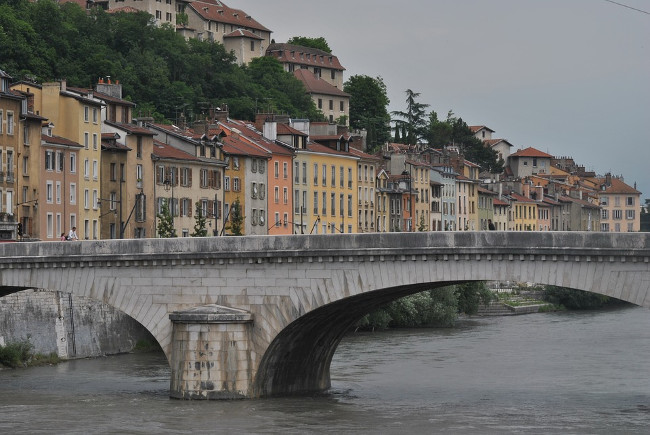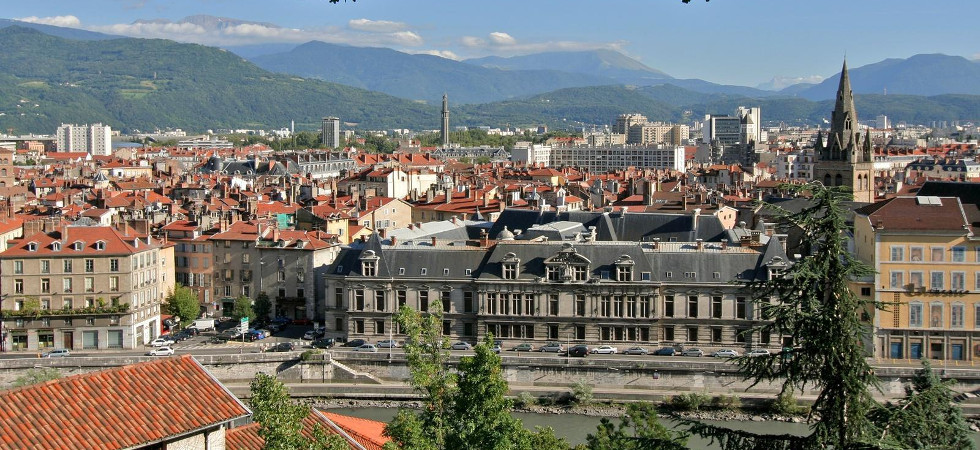Grenoble is often dismissed as little more than a snow lovers’ luxury gateway to the Alps. But nestling amidst the scenic Isère Valley, this ancient city’s rich and tapestried history and its unmistakably Gallic sense of identity deserve so much more than a mere passing glance.
As a base for summer adventure sports, Grenoble is perfectly placed to exploit the magnificent mountain scenery of the eastern Alps. Walkers, climbers and cyclists will all find a diverse and spectacular landscape that incorporates Alpine meadows, dense pine forests and of course mountains – the famous Alpe D’Huez resort is a mere 40 miles to the east.
And for less strenuous days Grenoble offers an ancient charm all of its own. The bijou market squares, cobbled alleyways and hide-away cafés of the Veille Ville (Old Town) are an unfolding delight. To spend time in the spectacular Veille Ville is to lose yourself in time.
The city was established in Roman times and has been a significant administrative, commercial and religious centre ever since. That rich historical legacy is still evident in the city’s 3rd century Gallo-Roman ramparts, the imposing fortifications of the Fort de la Bastille, the spectacular cathedral, and its numerous and fabulously appointed museums. It is with good reason that they take great pride in their past in this former regional capital of the historic Region Dauphiné.

Magnificent museums
The Musée Dauphinois, charmingly housed in a 17th century convent building, offers a broad overview of Apline civilisation; The Musée Archéologique Grenoble-Saint Laurent, even more spectacularly set in an 8th century church building, provides fascinating insights into the region’s art and architecture dating back to the early middle ages; the Musée de la Résistance et de la Déportation de l’Isère charts the city’s occasionally brutal history as a key site in the resistance against the Nazis. History lovers of all persuasion are abundantly catered for in Grenoble, and for the literary minded the Musée Stendahl celebrates the life and work of one of France’s most distinguished authors.
Luxury accommodation galore
Visitors of all persuasion will find that they are well catered for in a region that is increasingly welcoming to visitors of all persuasion. Both the city itself and its outskirts are well-supplied with accommodation, either in the form of established luxury hotels or self-catering apartments that serve their purpose equally well for summer or winter visitors.
The centrally placed 4-star Park Hotel Grenoble for example is within convenient distance from the city’s retail districts, whilst one of Owner Direct’s large ski chalets, set in the idyllic Grenoble foothills, offer value for larger groups wanting to have a high-end holiday experience.
Environs to envy
Outside of the city itself visitors will be astonished at the wealth of attractions awaiting them. The Isère Valley is home to striking chateaux and jardins – none more so than the fairy tale Château de Vizille – as well as the wilder, less cultivated delights of the Parc Naturel Régional du Vercors, some 25 km to the south-west of the city. Likewise, the nearby Parc Naturel Régional de Chartreuse is a walkers’ paradise, replete with meandering footpaths and dotted with rustic inns offering typically satisfying cuisine.
There is, inevitably far more to Grenoble than we can describe in just a few short lines, just as there is far more to appreciate than you can tell on a transfer from the airport to the pistes during the winter sports season. Grenoble is not just for skiers!
All images used in this article credit: Pixabay.com






















